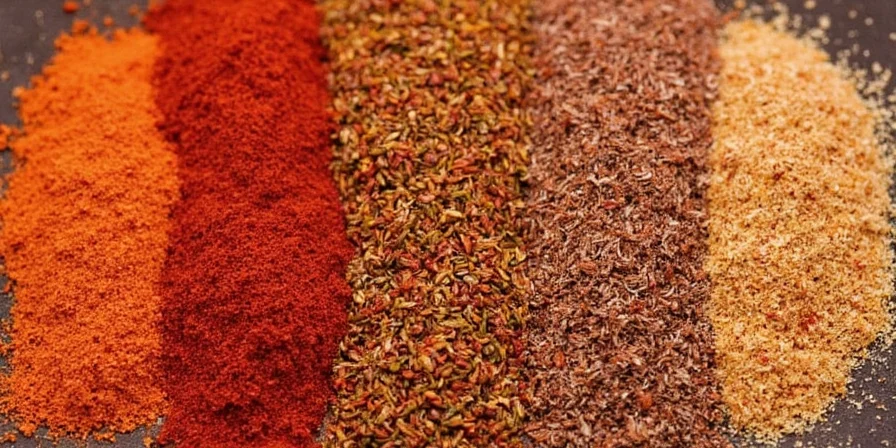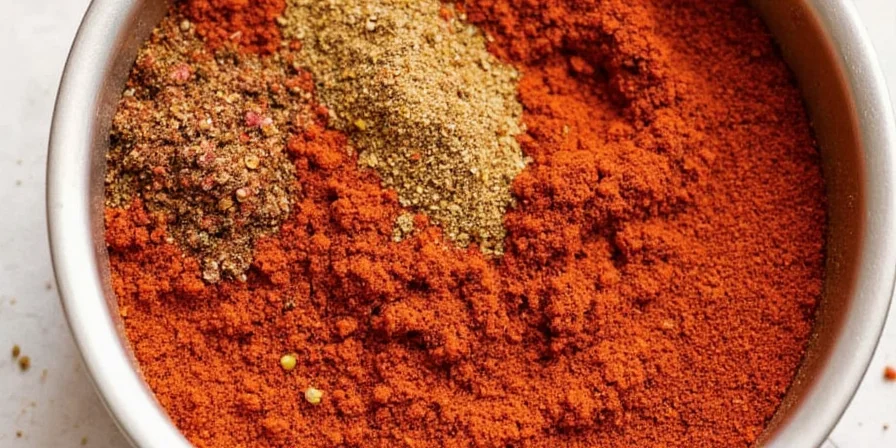Let the Fiesta Begin: All About Fajita Seasoning Ingredients
If you've ever bitten into a sizzling plate of fajitas and wondered, 'What magic is this?', you're not alone. The real star behind those mouthwatering flavors? Fajita seasoning ingredients! Whether you're a pro chef or just someone who loves tacos on Tuesdays, this blog post will spice up your life with everything you need to know about this flavor-packed blend.
Table of Contents
- What Exactly Is Fajita Seasoning?
- The Holy Trinity: Core Fajita Seasoning Ingredients
- Spice Up Your Life: Optional Add-Ons
- DIY vs Store-Bought: Which One Wins?
- Make Your Own: Easy Homemade Fajita Seasoning Recipe
- Pro Tips for Using Fajita Seasoning Like a Chef
- Troubleshooting Common Fajita Seasoning Mistakes
- How to Store Fajita Seasoning for Maximum Flavor
- Creative Ways to Use Fajita Seasoning Beyond Fajitas
- FAQs: Everything You Wanted to Ask About Fajita Seasoning
What Exactly Is Fajita Seasoning?
You might be thinking, 'Isn’t it just chili powder?' Wrong! Fajita seasoning is more than just one ingredient — it’s a south-of-the-border symphony of spices that turns ordinary chicken or beef into something magical. Think of it as the MVP (Most Valuable Powder) of Tex-Mex cooking. From backyard BBQs to gourmet kitchens, this blend has earned its stripes.
The Holy Trinity: Core Fajita Seasoning Ingredients
Every great blend starts with the basics. Here are the non-negotiables:
| Ingredient | Taste Profile | Why It Matters |
|---|---|---|
| Chili Powder | Earthy, slightly spicy | Base layer of flavor, gives depth |
| Cumin | Nutty, warm, smoky | The soul of Mexican cuisine |
| Paprika | Sweet, fruity, mild | Adds color and subtle sweetness |
Spice Up Your Life: Optional Add-Ons
Once you’ve got the base down, it's time to get creative! These extras can turn your mix from “meh” to magnificent:
- Garlic Powder – Because garlic makes everything better
- Onion Powder – For that savory umami kick
- Smoked Paprika – Adds a barbecue feel without lighting up the grill
- Cayenne Pepper – If you like it hot, really hot
- Oregano – A little goes a long way for herb lovers

DIY vs Store-Bought: Which One Wins?
Let’s talk truth: store-bought is convenient, but DIY is where the love lives. Here's how they stack up:
| Category | DIY Blend | Store-Bought |
|---|---|---|
| Flavor Control | Customizable | Fixed formula |
| Cost | Lower long-term cost | More expensive per use |
| Convenience | Requires prep time | Grab-and-go |
| Freshness | Fresher if stored right | Might be older stock |
Make Your Own: Easy Homemade Fajita Seasoning Recipe
Ready to become a spice wizard? Try this easy recipe:
Homemade Fajita Seasoning - 2 tbsp chili powder - 1 tbsp ground cumin - 1 tbsp paprika - 1 tsp garlic powder - 1 tsp onion powder - ½ tsp smoked paprika (optional) - ½ tsp cayenne pepper (for heat lovers)Mix well and store in an airtight container. Use within 6 months for best flavor.
Pro Tips for Using Fajita Seasoning Like a Chef
- Don’t Skimp: Be generous with the seasoning — especially with lean cuts of meat.
- Marinate Smart: Let meats sit with the seasoning for at least 30 minutes before cooking.
- Oil It Up: Toss veggies or meat in oil before adding the seasoning to help it stick.
- Rub It In: Massage the seasoning into chicken or steak for deeper penetration.
- Balance Is Key: Pair with citrus (like lime) or dairy (think sour cream) to round out the flavor.
Troubleshooting Common Fajita Seasoning Mistakes
We all make mistakes. Here’s how to fix the most common ones:
| Problem | Solution |
|---|---|
| Too salty | Add a splash of vinegar or lemon juice |
| Too spicy | Dilute with more neutral ingredients or add dairy |
| Bland flavor | Boost with fresh herbs, lime zest, or a touch of acid |
| Clumpy mix | Break up clumps with a fork and store with rice packet to absorb moisture |
How to Store Fajita Seasoning for Maximum Flavor
Keep your homemade mix tasting fresh by following these storage tips:
- Airtight Container: Mason jars or spice tins work best.
- Cool & Dark: Store away from heat sources and direct sunlight.
- Label It: Write the date so you know when to refresh your stash.
- Add Rice: A few grains of uncooked rice prevent clumping.
- Shake It Up: Give the jar a quick shake every once in a while to keep things evenly mixed.

Creative Ways to Use Fajita Seasoning Beyond Fajitas
Who says fajita seasoning is only for fajitas? Here are some unexpected uses:
- Popcorn Seasoning: Sprinkle on air-popped popcorn for a spicy snack.
- Potato Wedges: Mix with oil and coat potatoes before baking.
- Grilled Veggies: Brush on grilled zucchini, peppers, or eggplant.
- Scrambled Eggs: Add a pinch for a breakfast twist.
- BBQ Ribs: Use as part of your dry rub for a Southwestern kick.
FAQs: Everything You Wanted to Ask About Fajita Seasoning
Can I use taco seasoning instead of fajita seasoning?
Technically yes, but they’re not the same. Taco seasoning often includes more oregano and salt, while fajita seasoning leans on garlic and onion powders.
Is fajita seasoning gluten-free?
In most cases, yes — but always check labels if buying store-bought. Some blends may include anti-caking agents with gluten.
How much seasoning do I use per pound of meat?
A good rule of thumb is about 1–2 tablespoons per pound, depending on how bold you like your flavor.
What protein works best with fajita seasoning?
Skirt steak is traditional, but chicken, shrimp, pork, or even tofu soak up the flavor beautifully.
Can I adjust the heat level?
Absolutely! Adjust cayenne pepper or swap in milder paprika to suit your heat tolerance.
Conclusion: Spice It Up, Don’t Hold Back!
Whether you’re grilling up dinner or spicing up your snacks, understanding the building blocks of fajita seasoning ingredients can transform your kitchen game. Now that you’ve unlocked the secrets behind this beloved blend, go ahead — get mixing, marinating, and experimenting.
Remember: the best seasoning is the one you tweak and call your own. So grab those jars, wear your apron like a cape, and let your taste buds lead the way!











 浙公网安备
33010002000092号
浙公网安备
33010002000092号 浙B2-20120091-4
浙B2-20120091-4